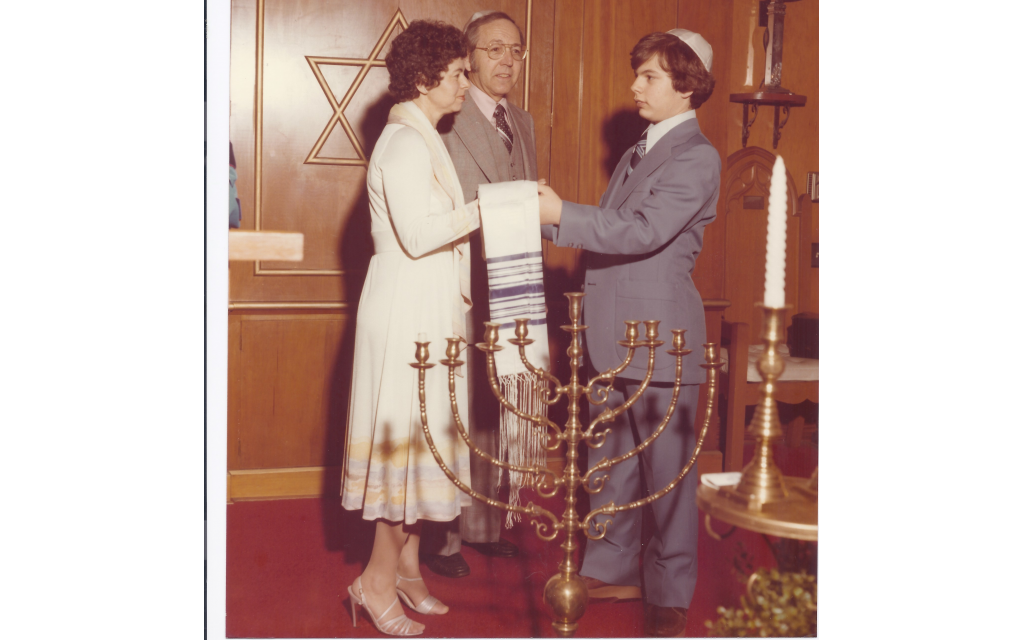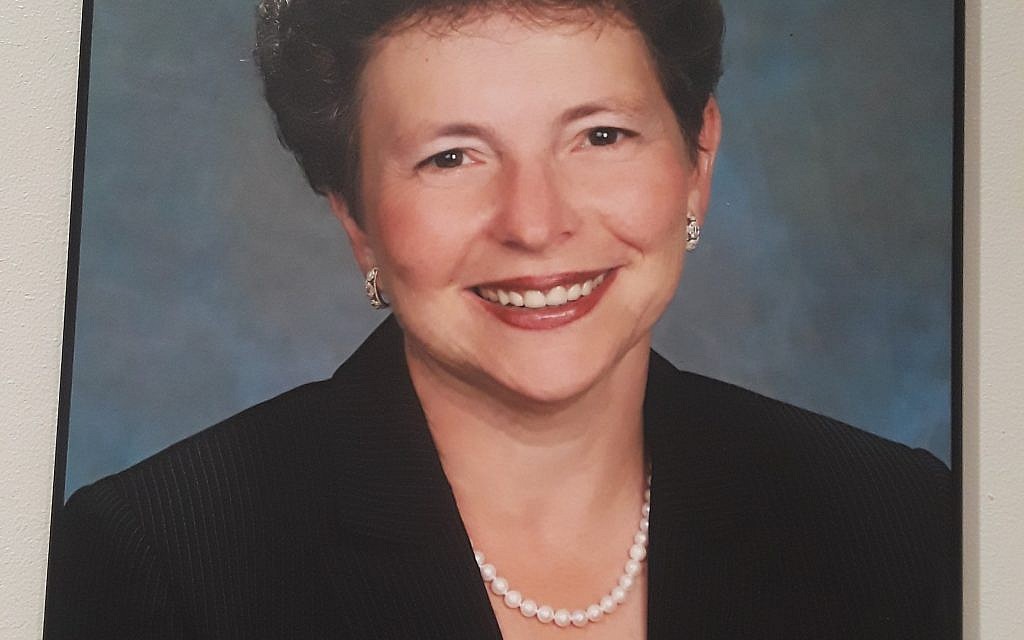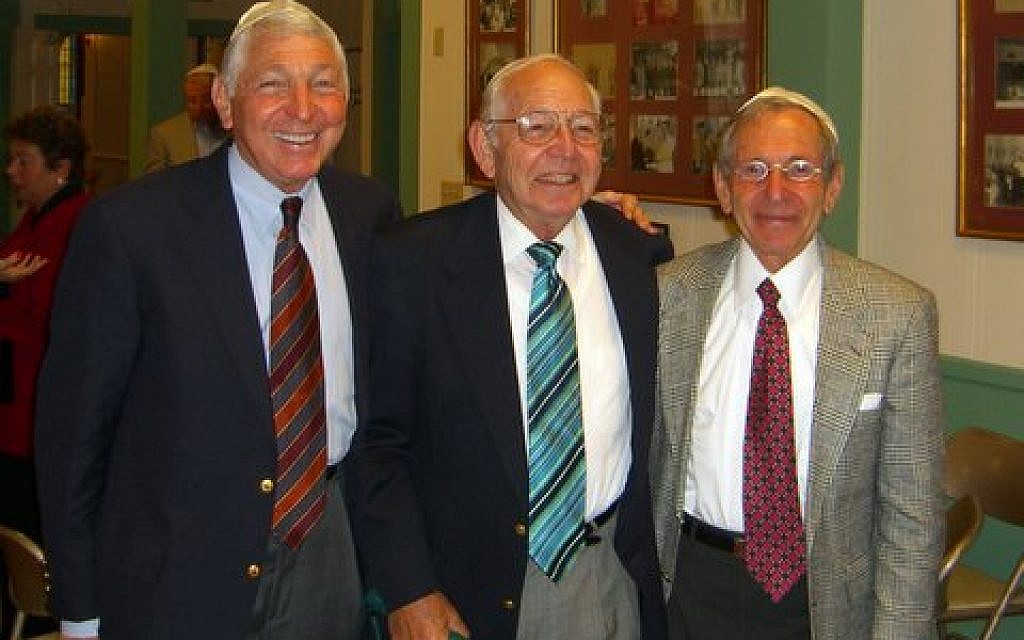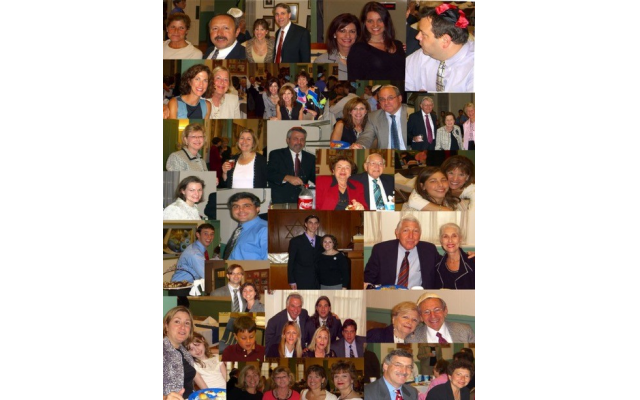Home For the Holidays
Fitzgerald Hebrew Congregation in south central Georgia attracts Jews from surrounding towns. In fact, in 1968, the congregation’s 14 board members came from 10 different towns.
It’s not unusual for Atlantans from small Georgia towns to support and, sometimes, visit their former home- towns and congregations. But Fitzgerald in south central Georgia is different.
“Feed them and they will come” appears to be the motto of Fitzgerald Hebrew Congregation, a Conservative shul that for generations has attracted Jews from surrounding towns such as Cordele, Tifton and Ocilla – wherever there were Jews in an 80-mile radius. In fact, in 1968, the congregation’s 14 board members came from 10 different towns.
For Rosh Hashanah, 150 current Fitzgerald-area Jews, plus former residents living in Atlanta, Savannah, Macon and as far away as Toronto, New Jersey, New York and California, gathered for services with their guests.
“They want to come and visit people they haven’t seen in years. It’s more like a family reunion,” says Phil Perlis, 59, who still lives in Tifton and runs the remaining Jewish-owned store in the area, The Big Store.

“We do things a little differently here. It’s special. On the eve of Rosh Hashanah, we have an open bar and serve a wonderful, kosher, catered dinner before services. Then a lunch after services on Rosh Hashanah. On Yom Kippur, we serve a meal before Kol Nidre and a break fast at the end of the holiday. Where else can a family get together and not have to cook one meal, and stay as long as you want? I’ve been putting together these meals (plus Passover seders) for years; it’s a big undertaking.”
Alice Singer Shapiro has been in Atlanta for about 40 years, but she still returns to Fitzgerald for the High Holidays. “It’s like a homecoming. It’s like going to camp for adults.” As a child, the Columbus native spent weekends in Fitzgerald where her mother grew up. “I loved it,” says the current member of B’nai Torah.

A former president of B’nai Torah and cousin of Phil Perlis’, Janice Perlis Ellin still returns to Fitzgerald Hebrew Congregation for Rosh Hashanah. “I’ve never spent Rosh Hashanah anywhere else,” says the Cordele native. “The entire board are relatives of mine.”
While everyone who returns to Fitzgerald for the High Holidays mentions the uniqueness of the meals, for which they pay a charge, Ellin points to other exceptional aspects of the shul. Congregants don’t pay dues. It’s all voluntary. Or, as her brother David Perlis states, “If the building or synagogue needs something, a family member just buys it.”
“But everyone is treated equally,” Ellin says. “If you are a first-timer or have been there 1,000 times, you are as likely to get an aliyah as anyone else.”
The town of Fitzgerald was founded in 1896 for former Union and Confederate veterans. Downtown streets were named for renowned generals from both sides.
Fitzgerald has also been heralded as the smallest town in the country to have its own synagogue. Prior to buying a former Methodist church to house the congregation in 1942, the Jewish community met in people’s homes, or above the Masonic lodge. Five years later, the Fitzgerald Hebrew Congregation hired its only full-time rabbi, Nathan Kohen, who served the synagogue for 28 years until his death in 1975. Student rabbis from the Jewish Theological Seminary in New York have been assigned to serve the congregation once a month and for holidays.

Perlis is the nominal president of the congregation. “We lead it by committee,” he told the AJT. “I don’t like to be called president. We used to have elections,” but over the last 10 years, “it’s been the same five folks.”
Fitzgerald Hebrew doesn’t attract large crowds for its Shabbat services, although homemade treats are provided at the onegs. There are also study sessions and Havdalah services “to keep the sense of community,” he says. “We’re not a growing congregation,” Perlis says. But as Penson Kaminsky – who was born in Fitzgerald in 1940 – says, “We’re vibrant.”
Noah Levine of the Jewish Community Legacy Project has been helping Fitzgerald Hebrew Congregation with its long-range planning. Shapiro, who calls the congregation “the little shul that could,” says some day it should be made into a museum. For now, “Penson Kaminsky and his wife are keeping the shul alive.”
Meanwhile, the “small town within a small town,” as Ellin calls Fitzgerald Hebrew, continues to attract generations of congregants for the High Holidays, as well as bragging rights for one of its most notable residents. Morris B. Abram, son of a former Fitzgerald Jewish merchant, is being lauded for his career as a civil and human rights activist. A former national president of the American Jewish Committee as well as president of Brandeis University, Abram’s centennial is being commemorated at Emory University later this month.
This ongoing series about Jewish life in small towns is sponsored by the Atlanta-based Jewish Community Legacy Project. Visit www.jclproject.org to learn more about the initiative to help such communities as they navigate the present and prepare for the future.




comments